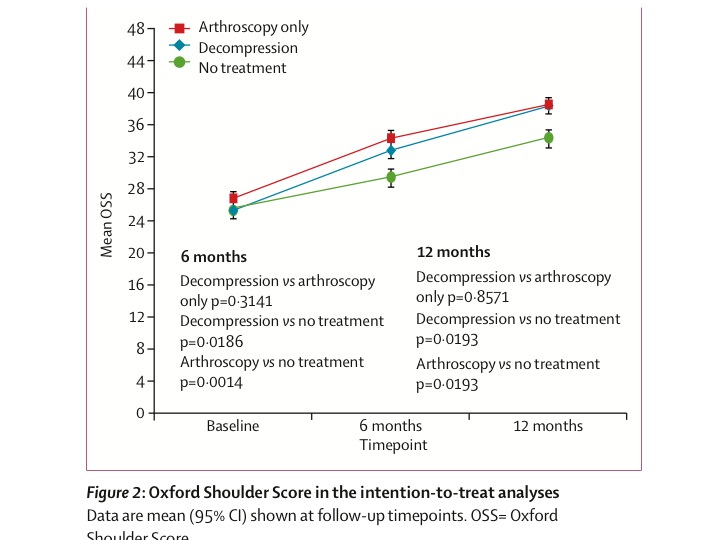We have previously written about the move away from arthroscopic surgery for degenerative meniscal tears and knee arthritis based on surgery’s limited effectiveness in the medical research. In addition, these surgeries have not been able to show greater outcomes than placebo or sham surgery. Until recently, studies have not utilized a comparable placebo group to orthopedic surgery but the results of these procedures on common knee and now shoulder conditions have been thought provoking.
Impingement or the compression of the rotator cuff tendons and bursa between the arm bone and shoulder blade (subacromial space) is the most common diagnosis behind shoulder pain. This condition is successfully treated with Physical Therapy interventions including manual therapy and exercise, but a subset of patients undergo decompression shoulder surgery. A recent research article compared the effectiveness of this surgery to both a no treatment/control group and a placebo surgery.
Beard and colleagues conducted a large, multi centered, randomized controlled trial of 313 patients with shoulder impingement (Lancet, 2017). Patients were randomized to either a decompression surgery, a sham surgery, or a no treatment group. Both surgical groups received post operative Physical Therapy. Surprisingly, there were no significant long term differences between either surgical group and the control group. In addition, there was no significant difference between the surgical and placebo surgery groups. The authors concluded the study findings call into question the value of surgery for patients with this subset of shoulder pain.


